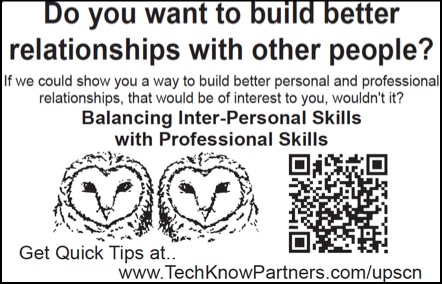Building Sustainable Advantage From Vision to Value
Building sustainable advantage comprises the activities required to build a position in the marketplace and community-at-large that is responsible, meets both current and future needs, is advantageous, and achieves performance excellence. It is applicable from the creation of a vision to the delivery of the resulting value on an ongoing basis.
***
In the twenty first century, community and business leaders in both public and private sectors are addressing sustainability - meeting the needs of the present without compromising the future. Sustainability is an important issue for enterprises.
Whereas an enterprise may be started by a single entrepreneur to transform an innovative idea into a valuable product and/or service, there is mutual responsibility with its constituencies to perform and deliver value over time. Constituencies build vested interests in an enterprise as a consequence of its efforts to attract and acquire, expand, and maintain relationships with them. Employees rely on jobs, customers rely on products and/or services, suppliers rely upon orders, and investors rely upon return on investment from generation to generation. If an enterprise reduces or discontinues operations, the effect is disruptive on its constituencies, markets, and the community-at-large, if not devastating.
Accountants and auditors consider whether an enterprise is a "going concern" based upon its ability to meet its financial obligations. Doubts may arise from the inability of an enterprise to generate sufficient cash flows from operating activities, sell assets to generate cash, or restructure debt. Being an "ongoing concern" is an extension of the concept.
Continuing as an ongoing concern means that the management of an enterprise has the confidence, competencies and commitment to operate indefinitely. To do so requires fostering the entrepreneurial mindset and actions through the discipline of intrapreneurship, and reaching beyond business-as-usual by building sustainable advantage.
Considering sustainability responsibly in all decision making...
The sustainable enterprise employs three criteria in all decision making - are the mindset and intended actions environmentally, economically, and socially responsible?
Being environmentally responsible impacts the capabilities of people, processes, and products and/or services. It means taking care of the ecological biosphere by protecting natural resources; avoiding pollution of air, water, and soil; being energy efficient; and reusing and recycling materials, supplies, and products to reduce waste.
Being economically responsible means applying the disciplines of stewardship and value management to constituencies. Employees are offered fair compensation in exchange for loyalty and productivity. Customers are offered quality and value in exchange for loyalty and timely payments. Suppliers are offered loyalty and timely payments in exchange for quality and value. Investors are offered returns above the cost of capital in exchange for commitment. Regulators are offered compliance in exchange for freedom to do business within laws and regulations. Competitors are offered challenges in exchange for fairness. As a consequence, natural, human, intellectual, and financial capital is not just preserved but appreciates over time.
Being socially responsible impacts the markets and communities that the enterprise serves and is served by. The minimum standards for social responsibility include not engaging in deceptive or fraudulent practices, and providing safe facilities and equipment, processes and functions, and products and/or services.
Meeting the needs of both current and future generations...
What is widely used today may be extinct tomorrow; what is commonplace tomorrow may not even have been thought of today. So it is necessary to anticipate the wants and needs of the future while deliberating in the environment of the present.
The sustainable enterprise ensures that the entrepreneurial, leadership, and managerial roles are performed throughout on an ongoing basis to transform innovation into value. Plans and policies must be deployed and executed with anticipation and deliberation, and with contingency because events may take a different course from those envisioned.
Gaining a beneficial position that will continue over time...
Enacting change, either by causing it or responding to it, is essential for sustainability. Maintaining business-as-usual is insufficient - an enterprise must stretch beyond its comfort zone because the only certainty is uncertainty.
The sustainable enterprise gains a beneficial position that continues over time by developing, enhancing, or maintaining its current posture in marketplaces, or by being willing to change.
From the creation of a vision to the delivery of value on an ongoing basis, the sustainable enterprise builds:
* Aspirational advantage - loyal relationships between employee, customer, supplier, and investor constituencies because stated values and enacted values are consistent
* Competitive advantage - the position and posture that offers consistencies better value than competitors
* Collaborative advantage - relationships between suppliers, or customers, or peers as a partnership with a common mission, and operating dependently for mutual value
* Cooperative advantage - relationships between suppliers, or customers, or peers as an association with a similar mission, but operating independently for mutual value
Achieving performance excellence...
The sustainable enterprise tries to do the right things, and then do them well. It is not afraid to change direction when it is doing the wrong thing, or when things aren't going well. It is not afraid to admit mistakes, learn from them, and move on. It is willing to take preventive action, but when cure is necessary, it takes remedial action swiftly. It strives to deepen relationships with current constituents with existing and new products and/or services, but also broaden relationships in existing and new markets.
Achieving performance excellence requires alignment between the enterprise and its constituencies externally, and between organizational units internally. It means exceeding requirements and expectations in terms of commitment to values and vision, and strength of financial and non-financial results including market share, resource utilization, productivity, time-to-market, cycle time, quality, satisfaction, and sustainability.
Building sustainable advantage from vision to value is an enterpriship (entrepreneurship, leadership, and management) competency.



